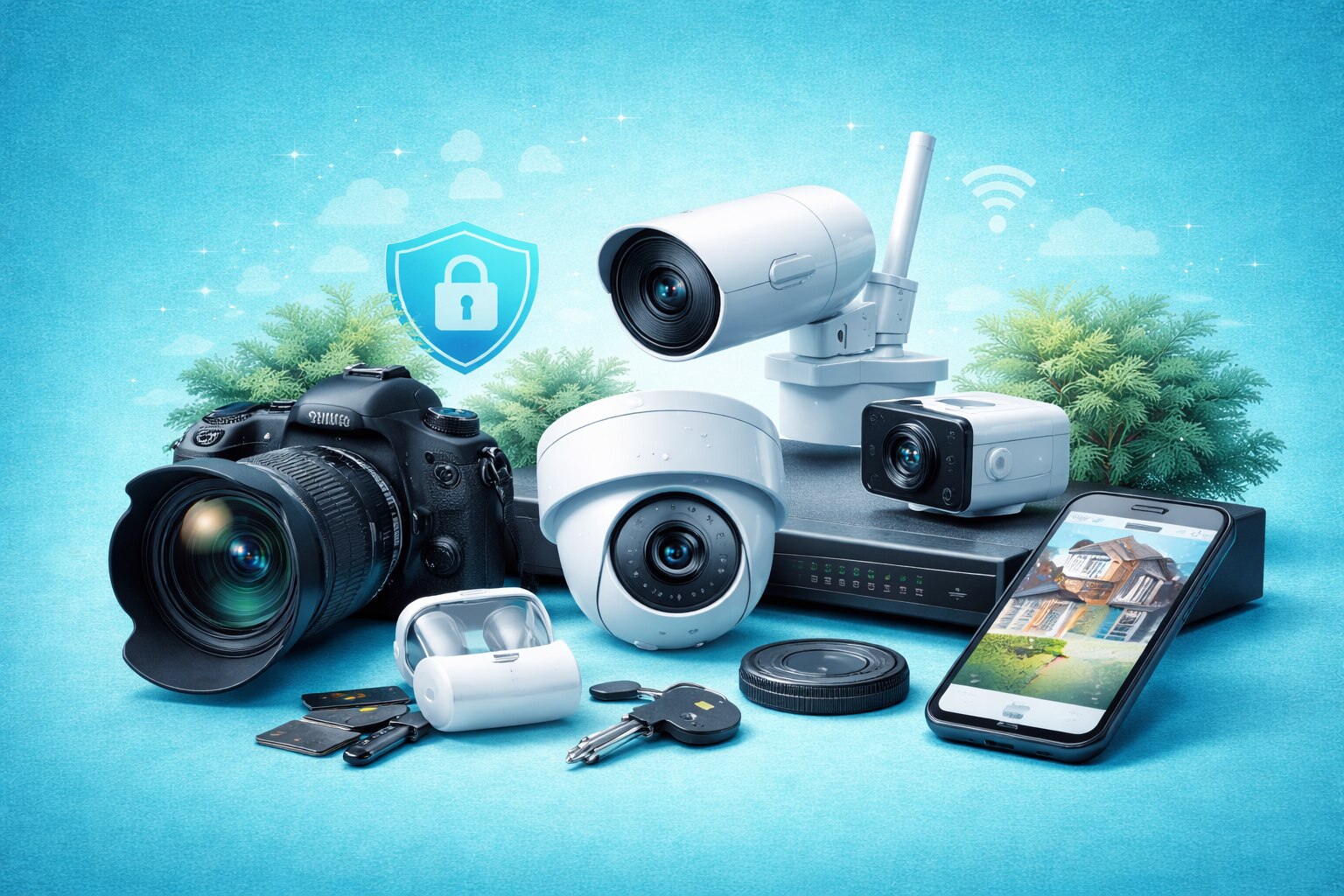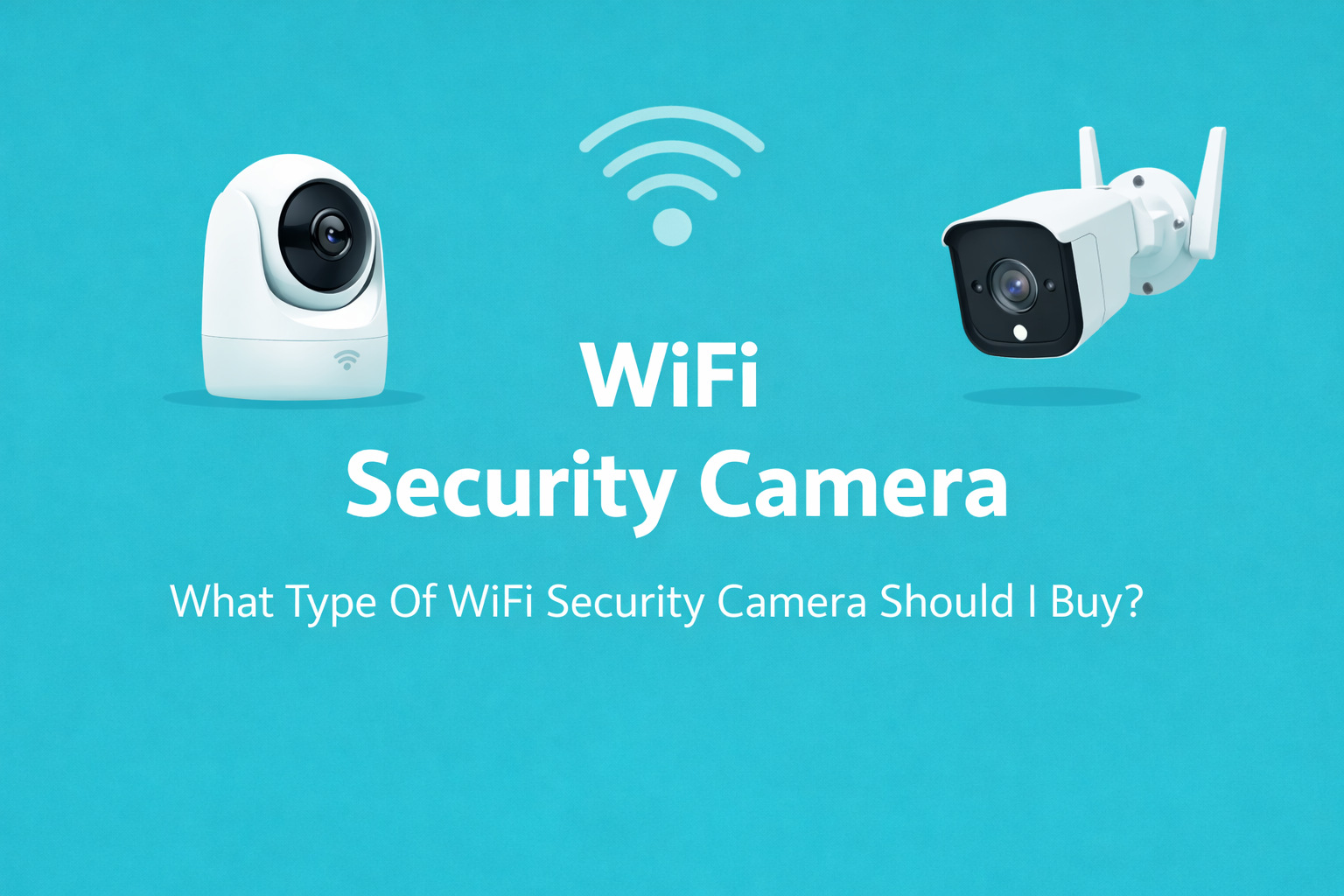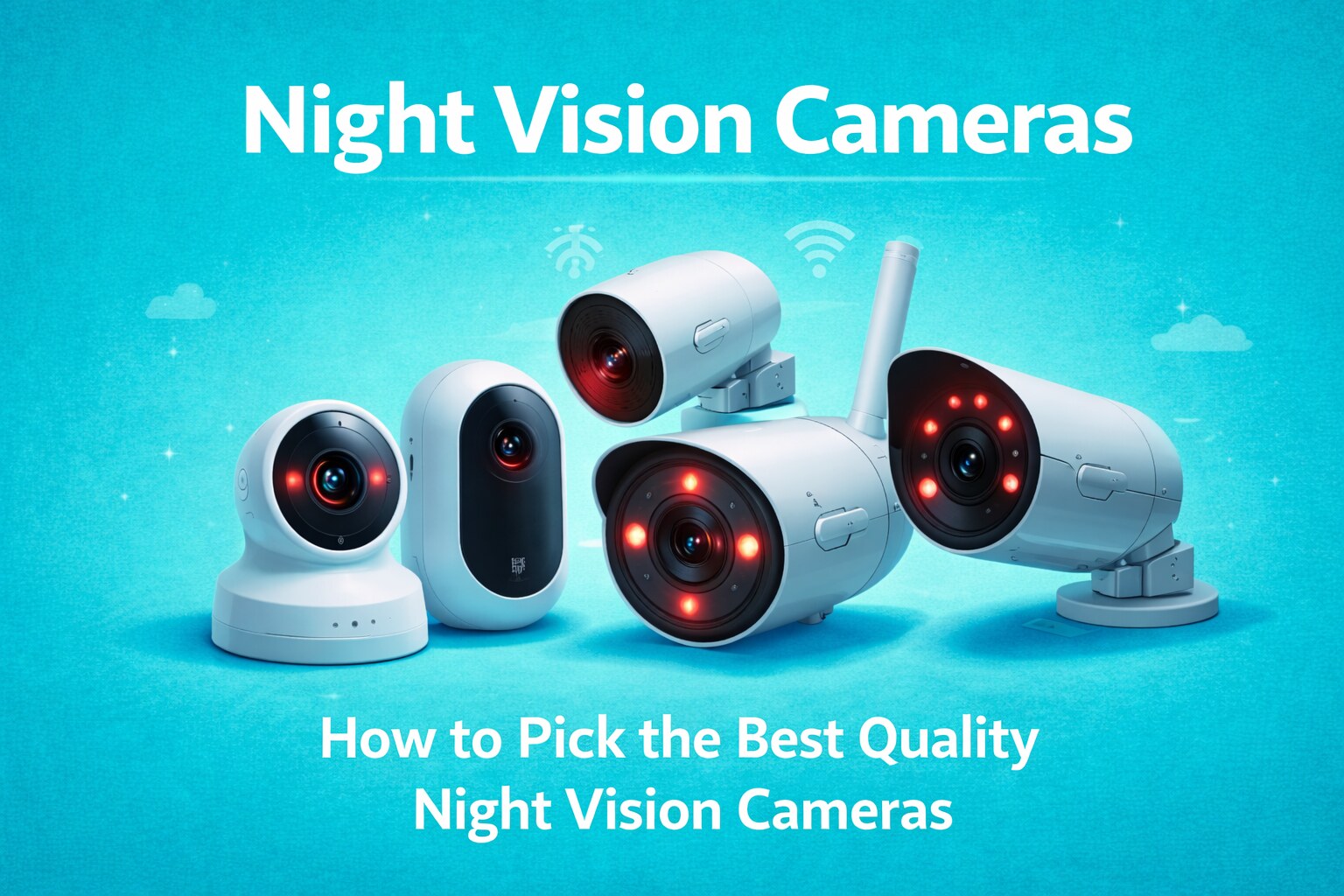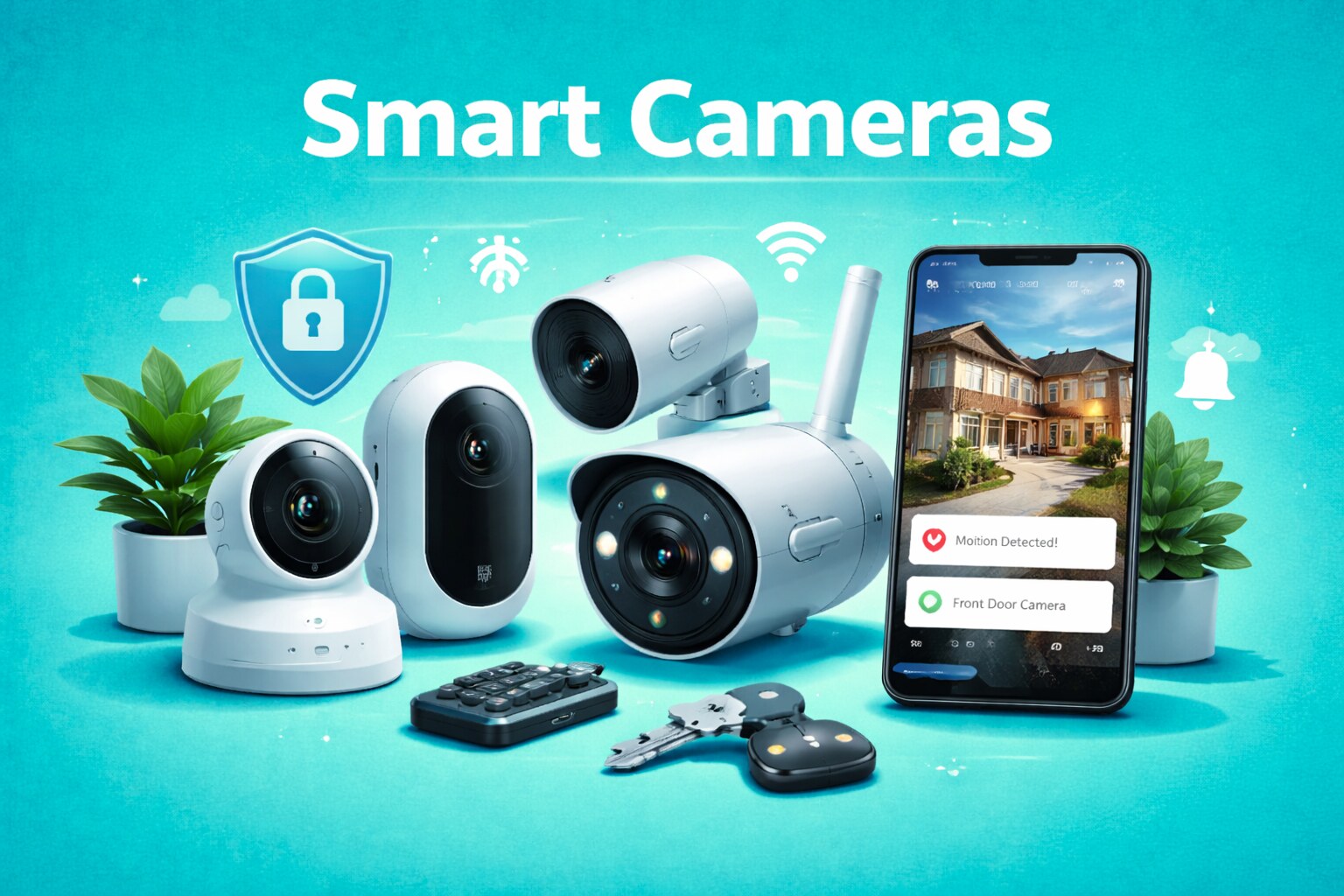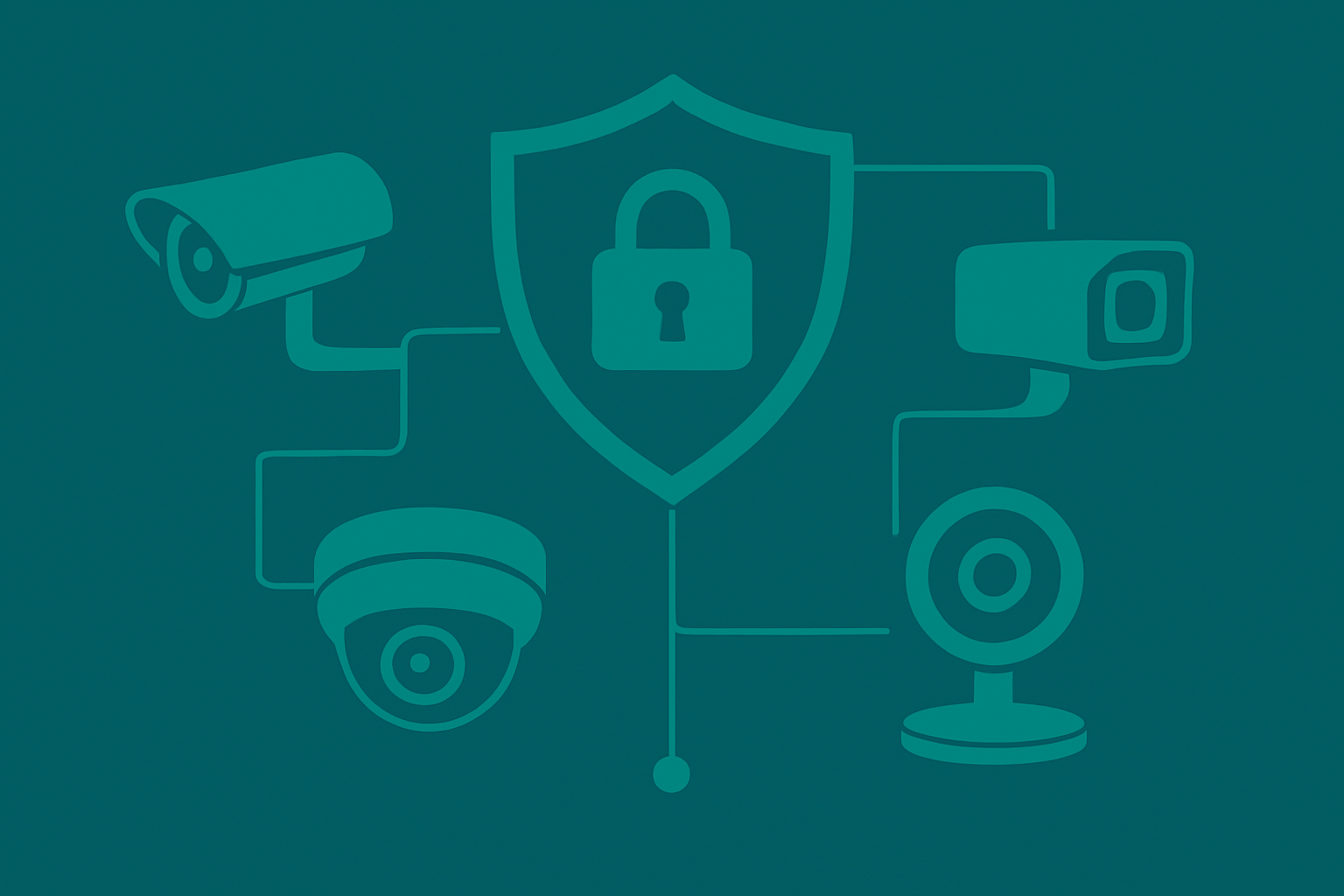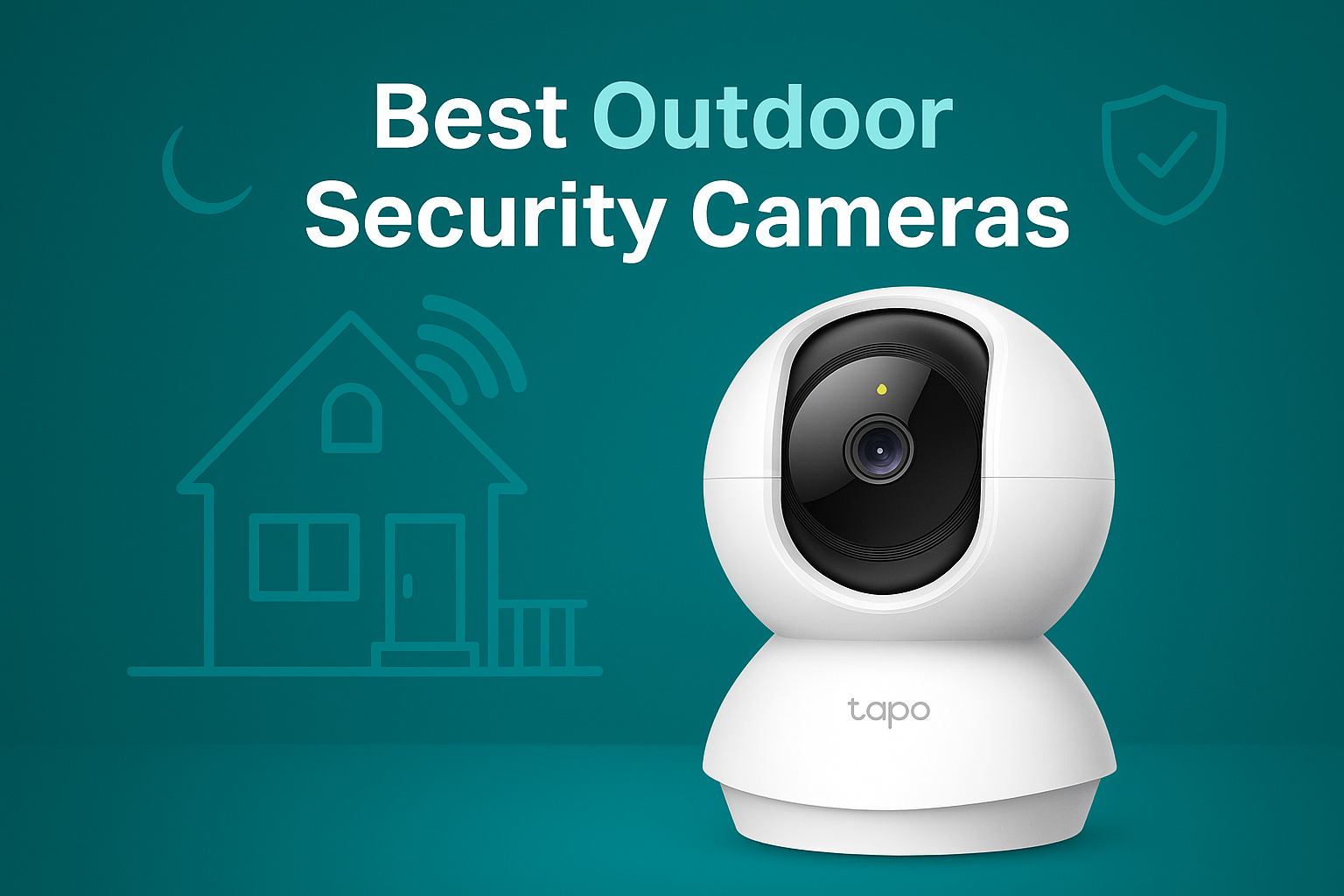What’s the Difference Between IP Camera and CCTV?
In today’s world, security is more than just locks and alarms—it’s about having eyes everywhere. Whether for homes, offices, or public spaces, surveillance systems play a crucial role in keeping people and property safe. Two of the most common technologies used are IP cameras and CCTV systems, but many people confuse the two or assume they’re the same.
They both do the same basic thing, which is to record and monitor behavior, but their technology, features, and uses are very different.
To help you choose the best system for your home, office, or business, let's look at the differences.
What is a CCTV camera?
CCTV stands for Closed-Circuit Television. It’s a traditional security system that uses analog cameras connected to a digital video recorder (DVR) through coaxial cables. The footage is recorded and stored locally, meaning it doesn’t rely on the internet. CCTV systems are often used in small businesses, warehouses, and older establishments that prefer a wired and stable setup.
The primary strength of CCTV cameras is reliability. Their use of a closed line keeps them from being affected by problems with the network or limits on bandwidth. They are, however, harder to set up and don't have as many remote viewing choices as newer systems.
How does a CCTV camera work?
A CCTV camera captures video footage of a designated area through its lens and converts it into an electronic signal. This information is sent to a device that records, like a DVR (Digital Video Recorder), so it can be saved and watched again later. Some systems also let you watch on TVs in real time.
Modern CCTV cameras often include features like night vision, motion detection, and zoom, making them effective tools for continuous monitoring, crime prevention, and overall property security.
What is an IP camera?
An IP camera, or Internet Protocol camera, is a digital camera that transmits video data over a network. It connects through Ethernet or Wi-Fi and stores footage either in the cloud or on local servers, or on SD cards. This makes IP cameras more adaptable, easier to set up, and able to be accessed from afar using desktop or mobile tools.
IP cameras have better picture quality and more advanced features, such as motion recognition, smart alerts, and two-way audio. A lot of them can also do analytics using AI, which makes them perfect for modern businesses, stores, and even smart homes.
How does an IP camera work?
An IP (Internet Protocol) camera records video and turns it into digital data that can be sent over a network, like the internet or a local area network (LAN). IP cameras don't need coaxial cables like standard CCTV cameras do; they use Ethernet or Wi-Fi to send footage to a computer, NVR, or cloud storage.
Many IP cameras have advanced features like motion recognition, remote access, high-resolution video, and more. This makes them flexible and easy to add to modern security systems.
Differences between IP and CCTV cameras
-
Connection method: IP cameras link to networks through Wi-Fi or Ethernet, while CCTV systems use analog cables.
-
Image quality: Most of the time, IP cameras have better resolutions than older analog CCTV cameras.
-
Remote access: With IP cameras, you can watch video footage through an app at any time, from anywhere. With CCTV cameras, you can only watch the video footage on-site.
-
Scalability: It's easy to add more IP cameras because they all connect to the network. For CCTV systems to work, they need extra wiring and DVR feeds.
-
Cost: While CCTV systems may be cheaper at first, IP cameras usually save more in the long run because they are easy to set up and require less upkeep.
Why IP cameras are becoming more popular
Business and home security infrastructure has seen a quick uplift with respect to CCTV surveillance, with companies and end-consumers replacing older CCTV systems with IP cameras. IP cameras make a better choice while utilizing existing networks and promising more advanced monitoring features.
Here are some of the top cameras to consider:
-
VIGI C540S 4 MP Outdoor Full-Color Bullet: It takes clear 4MP pictures and records in full color 24 hours a day, making it perfect for outdoor spying. Its long-lasting, weatherproof build means it will work for a long time.
-
VIGI C540-4G 4 MP Outdoor Full-Color 4G Pan Tilt: A flexible choice that comes with a 4G connection and pan/tilt control from a distance. It works great in building zones, temporary sites, and other places where Wi-Fi isn't stable.
-
VIGI C250 5 MP Full-Color Dome: A flexible dome camera with 5 MP resolution, full-color images, and a small, unobtrusive form that can be used indoors or outdoors in some situations.
-
VIGI C485 8MP Full-Color Turret Network Camera: A top-of-the-line model with 8MP ultra-HD quality, smart motion detection, and color visibility 24 hours a day. Businesses and homes can both use this camera to keep an eye on things.
-
VIGI C230I 3MP IR Dome Network Camera: A small dome camera that can't be broken into that can be used in hallways, offices, and small shops. With 3MP sharpness and infrared night vision, it can reliably cover areas with little light.
-
VIGI C340 Outdoor Full-Color Bullet Network Camera: A 4MP bullet camera with smart recognition, real-time classification, and sound that goes both ways. It can be used for outdoor monitoring because it has an IP67 rating, and its smart features make it a great choice for both security and remote video apps.
Which should you choose?
Your choice depends on your needs and area of application:
-
If you want a stable system that doesn't need to be connected to the internet, choose CCTV. It works well in places that are closed off or don't have good network connections.
-
If you want a modern, scalable, and smarter system that lets you see footage from afar, is easy to control, and can be expanded, choose IP cameras.
IP cameras are a better choice for most modern homes and businesses. They offer better picture quality, an easier installation, and advanced smart monitoring options that the traditional type of CCTV falls short on.
How do I know if my camera is an IP camera?
You can identify an IP camera by several key features:
-
Network Connection – IP cameras connect via Ethernet cable or Wi-Fi, not traditional coaxial cables like CCTV.
-
Access via Browser or App – You can view the camera’s live feed remotely through a web browser or mobile app.
-
IP Address – The camera has its own unique IP address on your network.
-
Higher Resolution – Most IP cameras provide higher-quality video compared to standard CCTV.
-
Advanced Features – Features like motion alerts, cloud storage, and two-way audio are common in IP cameras.
If your camera has at least a couple of these features, it’s likely an IP camera.
Can IP cameras work without internet?
Yes, IP cameras can work without internet, but with some limitations. Even without an internet connection, they can still record footage locally to a Network Video Recorder (NVR) or a microSD card and can be accessed on the same local network (LAN). Once the camera is online, you can watch the feed from afar and get cloud alerts, but not until the camera is online.
The future of surveillance
Security industry is more and more digital, with IP cameras as a considerable part of that. Companies like VIGI come up with new ideas daily by using AI-based analytics in combination with high-resolution imaging and remote access. These new ideas focus on making monitoring systems more useful and effective.
When you're trying to protect a small home office centerpieces or a number of business sites, a network-based surveillance camera system will ensure that you stay connected and safe around the clock.
Final thoughts
While CCTV systems still serve a purpose in certain environments, IP cameras have redefined what modern surveillance can do. They are best suitable for both home and business use because of their flexibility, high image quality, and smart features. If you’re looking to upgrade your security system, consider the VIGI range of IP cameras to get reliable, intelligent, and future-ready protection for your space.
Frequently Asked Questions
1. Can IP cameras be hacked?
Yes, it is definitely possible for IP cameras to be hacked, similar to any network-connected object if not duly guarded. However, installing free, strong passwords, keeping software up to date, and turning on encryption will help reduce such risk.
2. Can I connect an IP camera directly to a PC?
Yes, many IP cameras can connect directly to a computer using Wi-Fi or an Ethernet cable. For live feed viewing or settings changing, you would be required to use the software contained with it.
3. Are IP cameras safe?
IP cameras are generally considered safe when equipped with strong passwords, secure transports, and timely updates. All these things help in keeping other people from watching your video feeds.
4. What are the advantages of CCTV?
These cameras are there at all times, keeping an eye on everything, scaring one or the other person from committing crimes. They work greatly; they are very easy to install and never even or overtly compulsory to be hooked on the internet so they fit perfectly into both home and business surveillance purposes.
